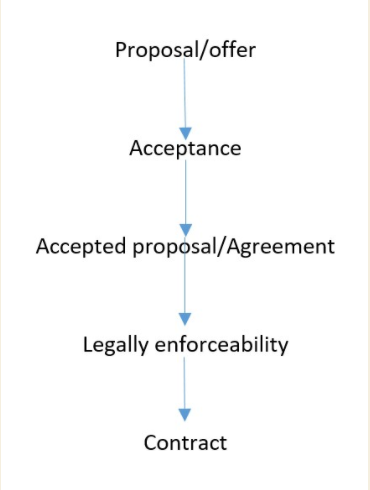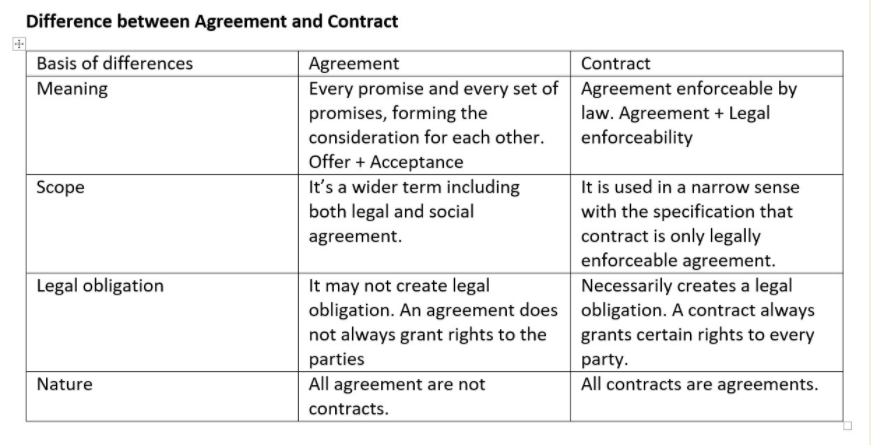Written By :- Amal Singh Patel (Amity Law School)

Introduction
As a result of increasing complexities of business environment, innumerable contracts are entered into by the parties in the usual course of carrying on their business. ‘Contract’ is the most usual method of defining the rights and duties in a business transaction. This branch of law is different from other branches of law in a very important respect. It does not prescribe so many rights and duties, which the law will protect or enforce; it contains a number of limiting principles subject to which the parties may create rights and duties for themselves.
The Indian Contract Act, 1872 codifies the legal principles that govern ‘contracts’. The Act basically identifies the ingredients of a legally enforceable valid contract in addition to dealing with certain special type of contractual relationships like indemnity, guarantee, bailment, pledge, quasi contracts, contingent contracts etc.
All agreements are not studied under the Indian Contract Act, 1872, as some of those are not contracts. Only those agreements, which are enforceable by law, are contracts.
WHAT IS A CONTRACT ?
The term contract is defined under section 2(h) of the Indian Contract Act, 1872 as-“an agreement enforceable by law”.
The contract consists of two essential elements:
- An agreement, and
- It’s enforceability by law.
- Agreement – The term ‘agreement’ given in Section 2(e) of the Act is defined as- “every promise and every set of promises, forming the consideration for each other”.
To have an insight into the definition of agreement, we need to understand promise.
Section 2 (b) defines promise as–
“When the person to whom the proposal is made signifies his assent there to, the proposal is said to be accepted. Proposal when accepted, becomes a promise”.
The following points emerge from the above definition:
- When the person to whom the proposal is made
- Signifies his assent on that proposal which is made to him
- The proposal becomes accepted
- Accepted proposal becomes promise
Thus we say that an agreement is the result of the proposal made by one party to the other party and that other party gives his acceptance thereto of course for mutual consideration. Agreement = Offer/Proposal + Acceptance
Enforceability by law
An agreement to become a contract must give rise to a legal obligation which means a duly enforceable by law.
Thus from above definitions it can be concluded that Contract = Accepted proposal/Agreement + Enforceability by law
On elaborating the above two concepts, it is obvious that contract comprises of an agreement which is a promise or a set of reciprocal promises, that a promise is the acceptance of a proposal giving rise to a binding contract. Further, section 2(h) requires an agreement to be worthy of being enforceable by law before it is called ‘contract’. Where parties have made a binding contract, they created rights and obligations between themselves.
Example: A agrees with B to sell car for `5 lacs to B. Here A is under an obligation to give car to B and B has the right to receive the car on payment of `5 lacs and also B is under an obligation to pay `5 lacs to A and A has a right to receive `5 lacs. So Law of Contract deals with only such legal obligations which has resulted from agreements. Such obligation must be contractual in nature. However some obligations are outside the purview of the law of contract.
Example: An obligation to maintain wife and children, an order of the court of law etc. These are status obligations and so out of the scope of the Contract Act.


